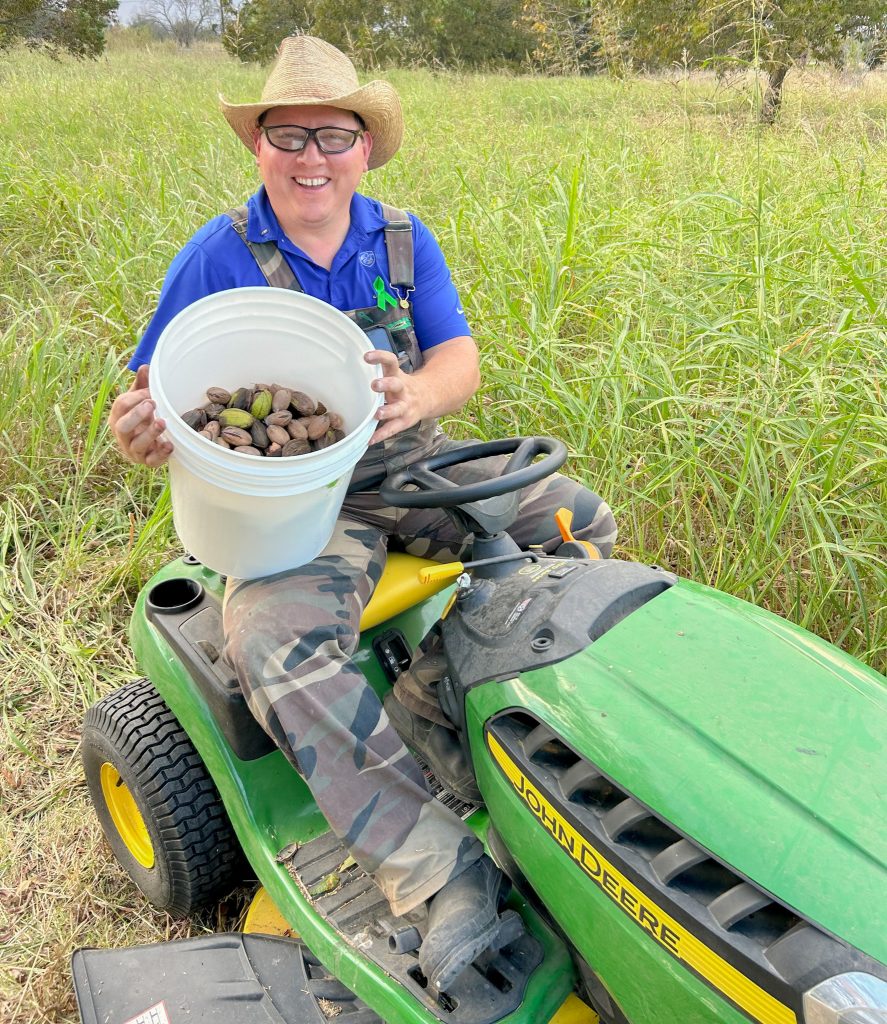Maxwell farmer receives grant to advance regenerative agriculture
By Anthony Collins
LPR Editor

In an era where many Americans have never met a farmer or know where their food comes from, one non-profit is bridging that gap, and regenerating the land in the process.
Kiss the Ground, a pioneering organization committed to soil health and regenerative agriculture, has announced its largest farmer initiative to date. Beginning in November 2024, the group awarded $500,000 in direct grants to U.S. farmers and ranchers to support their transition to regenerative agricultural practices.
Of the total funding, $200,000 was allocated to support in-person training and education for farmers and ranchers looking to shift to regenerative methods. The remaining $300,000 was distributed to 15 recipients for essential equipment, supplies, and infrastructure. Together, these recipients represent over 73,000 acres of farmland transitioning to regenerative practices.
“These grants are about more than funding,” said Evan Harrison, CEO of Kiss the Ground. “They’re about empowering farmers and ranchers to transform the way food is grown, rebuild soil health, and restore our connection to the land.”
Since its founding in 2013, Kiss the Ground has championed regenerative agriculture, a farming method that builds soil fertility, increases biodiversity, and lowers carbon. The non-profit’s latest expansion not only includes financial support but also amplifies farmer voices through robust storytelling efforts that connect consumers with the people growing their food.
“We all eat, yet there’s a profound disconnect between consumers and the source of their food,” Harrison added. “We’ve built strong, direct relationships with farmers who are passionate about regeneration. Now we’re telling their stories and helping ease the financial barriers of this important transition.”
One such story is that of Kris Vandenberg of Vetted Farms, a 2024 grant recipient. Located in Maxwell, TX, Vetted Farms will use its $25,000 grant to build one-acre regenerative plots dedicated to veterans and first responders. These plots will be used to grow vegetables, cover crops, and value-added produce while providing healing opportunities through land-based practices.
“Our goal is to serve veterans by helping them reconnect with the land,” said Vandenberg. “We’ll build mobile chicken coops, install fencing, and acquire essential equipment like a no-till drill and poultry fencing. With hands-on learning events and mentorship, this is just the beginning.”
Vandenberg’s 20-acre transition project will also involve partnerships with groups such as the Farmer Veteran Coalition of Texas and the Battleground to Breaking Ground initiative.
According to Patrick Brown, a Kiss the Ground board member and regenerative farmer, this approach is about more than farming, it’s a cultural transformation.
“The transition to regenerative agriculture is not just about changing farming practices; it’s about transforming our relationship with the land and our food system,” Brown said. “Kiss the Ground’s farmer offerings remove critical barriers, support farmers financially, and amplify their voices to accelerate meaningful change.”
To further connect consumers and producers, the organization has updated its online Farmer Hub, which now features a map of over 100 regenerative farms across the country. The hub encourages the public to support these farms directly and invites more growers to join the regenerative network.
Kiss the Ground estimates that for every $100 donated, the organization can help catalyze the transition of 10 acres to regenerative farming practices. The grant program aligns with the nonprofit’s broader mission: to improve human and planetary health through education, storytelling, and partnerships rooted in soil restoration.
As regenerative agriculture gains ground, Kiss the Ground’s support ensures that the movement is both inclusive and accessible, grounded in community, resilience, and a healthier future for all.

